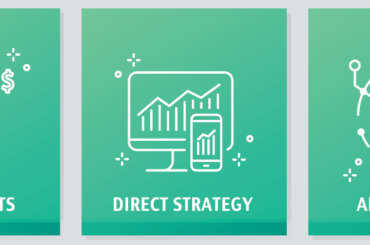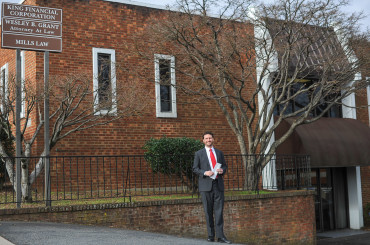A Donor Advised Fund, or DAF, may be a good philanthropic vehicle for investors who want help managing their charitable contributions while receiving immediate tax benefits. It requires that a donor contributes cash or assets to a public charity that sponsors and sets up that Donor Advised Fund. Donors are retained in an advisory role while participating in this type of fund.

According to the IRS, Donor Advised Funds are operated by 501(c)(3) organizations who act as sponsoring organizations. For instance, a donation is made by a donor who is conceding legal control over the contributions to the sponsoring organization of the fund. However, the donor and/or that donor’s financial representative retains advisory privileges on how the money is spent and how the investment of that money is managed.
Contributing to philanthropic operations is becoming more popular through this managed service where performance, control and tax strategy are balanced. There are three simple roles the donor plays for a Donor Advised Fund:
- DONATE ASSETS – Make a tax-deductible donation in the form of stocks, real estate, stock or cash to a Sponsoring Organization
- DIRECT STRATEGY – Grow your donation based on your own investment preferences
- ADVISE FUND – Give ongoing advise on how the sponsoring organization gives
Tax Benefits for using a Donor Advised Fund
Cash contributions in a Donor Advised Fund typically allow for income tax deductions of up to 50% of an individual’s adjusted gross income. Donating long-term appreciated assets typically means the donor will not pay capital gains but still takes an income tax deduction of up to 30% of adjusted gross income.
Management Benefits for using a Donor Advised Fund

King Financial has a history of philanthropy in Concord, NC and nationally. Because of this expertise in giving, King Financial may be able to advise clients on which direction to take their charitable strategies.
Donor Advised Funds are flexible because they allow donors to recommend grants from the fund over time while playing a passive role in the administration. The donor also has the ability to remain anonymous when advising the sponsoring organization on how to allocate the investments. The organization sponsoring a DAF takes advice from the donor on how to grant the money to that donor’s favorite charities, or the donor may choose not to advise the organization by letting the sponsoring organization allocate resources as they see fit.
By taking advantage of a Donor Advised Fund a donor can simplify record keeping while maintaining control over the direction of those charitable contributions. All the while, donors reap the tax benefits of traditional giving strategies.
The popularity of Donor Advised Funds is rising
The popularity of these funds is growing exponentially according to the National Philanthropic Trust. In 2015 contributions to Donor Advised Funds recently surpassed $786.64 billion and represent more than 7% of all individual charitable donations. Because the sponsoring organization is taking on the burden of administration for all its contributing donors, a bottom-line cost savings is inherent.
It is important to choose your sponsoring organization carefully. Ask your financial advisor for help in locating a Donor Advised Fund that is right for you.

Running a charity is difficult. Deciding how to spend that money is also difficult. By utilizing a Donor Advisor Fund, individual donors can help to influence their favorite causes while outsourcing the administrative burdens to sponsoring organizations who role is to ensure charity is dispensed according to the advise and economics of their stated mission.
Additional Resources on Donor Advise Funds
- National Philanthropic Trust, Donor-Advised Fund Report
- Elfreena Foord, Philanthropy 101: Donor advised Funds
- Donor Advised Funds at American Endowment Foundation
- CNBC, The Pros and Cons of Donor Advised Funds



